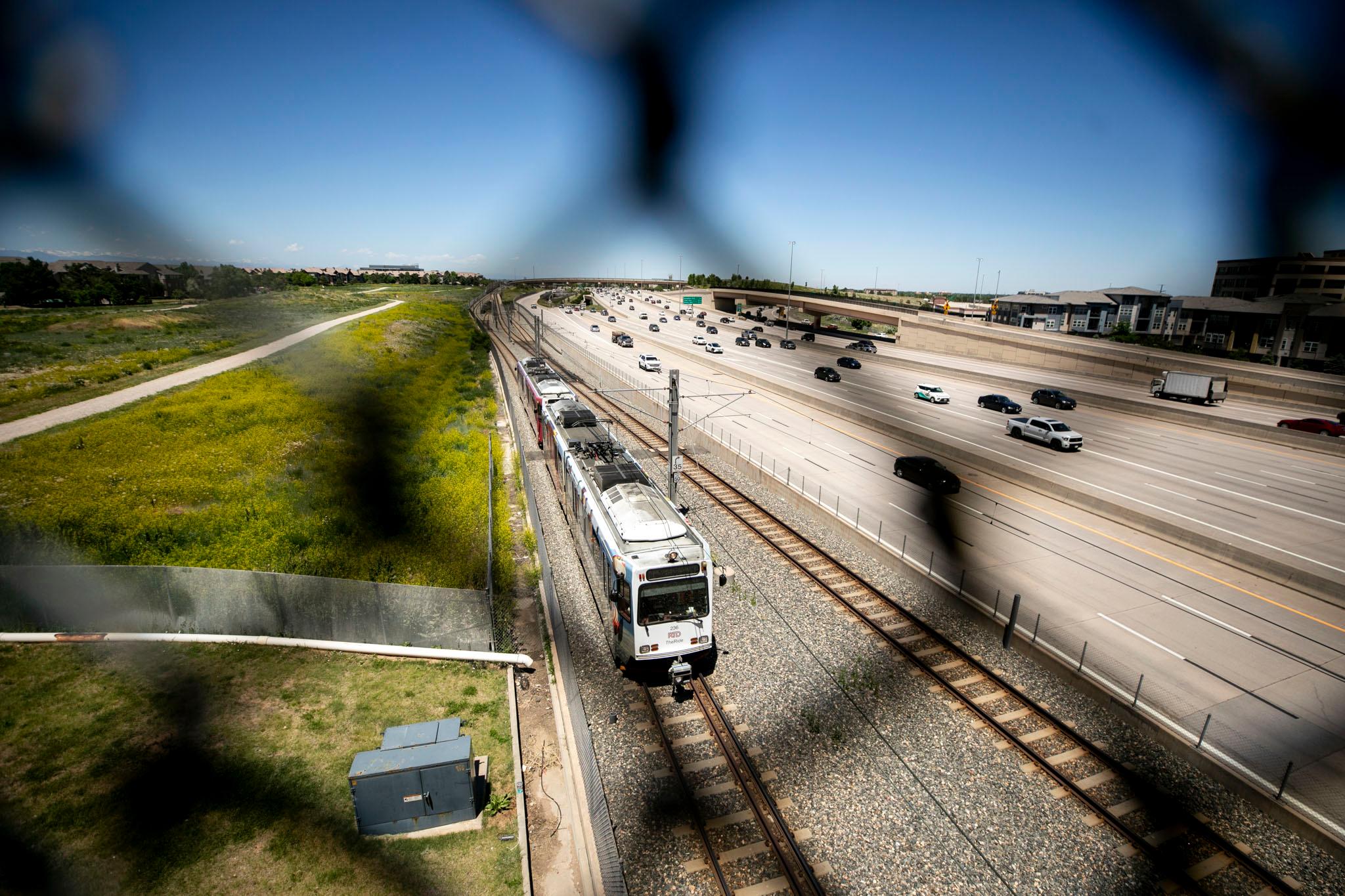
The Regional Transportation District will likely add a question to the November 2024 ballot asking voters to permanently allow it to keep revenue that would otherwise be refunded to taxpayers under the Taxpayer’s Bill of Rights.
An RTD board committee unanimously endorsed the “debrucing” ballot question on Tuesday, a reference to TABOR’s author Douglas Bruce.
RTD’s full board will vote in late June on whether to send the question to voters. The agency currently has two different exemptions from TABOR for different parts of its budget; one expires later this year, the other in 2050. The ballot measure would ask voters to spare RTD’s entire budget from TABOR limits permanently.
Board chair Erik Davidson said if the soon-to-expire exemption were to lapse, RTD might have to refund tens of millions of dollars a year to taxpayers.
He also cited recent polling commissioned by RTD that showed nearly 70 percent support for the ballot measure among respondents.
“To me, it’s an easy answer to say that we proceed,” Davidson told the committee on Tuesday.
Most voters know TABOR as the reason Coloradans vote on taxes. But it does a lot more than that.
The lengthy constitutional amendment voters passed in 1992 also puts restrictions on how much revenue every government in Colorado can collect every year. Any excess revenue beyond a limit set by formulas within TABOR must be refunded to voters. TABOR also contains a “ratchet effect” that can lead to tighter limits and bigger refunds after a recession.
The state and many local governments have convinced voters to remove or weaken limits — some permanently. RTD’s current exemptions are only temporary. In 1999 and 2004, voters suspended TABOR revenue limits until RTD paid off debt for different rail projects.
RTD is set to pay off the debt voters approved in 1999 later this year. That means without new voter approval, TABOR limits would soon kick in and apply to about half of its annual revenue — nearly $670 million, RTD officials say.
How much of that $670 million would be refunded to taxpayers would depend on various economic factors, RTD CFO Doug MacLeod told the committee
“We know that it'll be negative, that it won't be anything good for RTD at some point,” MacLeod said. “We just don't know when.”
Davidson, the board chair, estimated that if TABOR revenue limits and the ratchet were in effect during the pandemic when RTD’s sales tax revenue dropped significantly and then quickly rebounded the next year, the agency would’ve had to refund somewhere around $50 million in 2022.
RTD also estimated that if TABOR limits were in place between 2007 and 2019, the agency would have refunded nearly $650 million in revenue to taxpayers.
It’s common for voters to remove TABOR limits. But RTD’s had a tough go lately
As of 2020, voters have approved more than 500 debrucing measures put forth by cities — a success rate of 86 percent, according to a count by the Colorado Municipal League.
Polling done for RTD suggests it has a good shot of being successful. But other results from the poll could be worrisome. The percentage of respondents who said they have favorable views of RTD has fallen from 72 percent in 2007 to 60 percent in 2024. Significantly fewer respondents consider RTD to have excellent or good service compared to 15 years ago, too.
RTD’s also made headlines this summer for a wave of maintenance projects and other issues that have combined to make light rail service slow, infrequent and unreliable. The light rail lines most affected by those disruptions, the E and H, were funded by the same 1999 vote that temporarily suspended TABOR limits.
Natalie Menten, a former RTD board member and a vocal supporter of the Taxpayer’s Bill of Rights, said she will oppose the ballot measure.
“The taxpayers deserve accountability and they deserve to keep more of their money in their pocket to choose the transportation mode that fits them best,” she wrote in a statement to the board that she also shared with CPR News.
Some poll respondents who said they would vote no cited “mismanagement” at RTD and said they see removing the TABOR limits as a waste of money.
But it’s also possible that voters would see the vote as an opportunity to make RTD better — or at least keep it from declining. Among respondents who said they’d vote yes, most cited a desire to support, improve and expand public transit as their top reasons for doing so.








